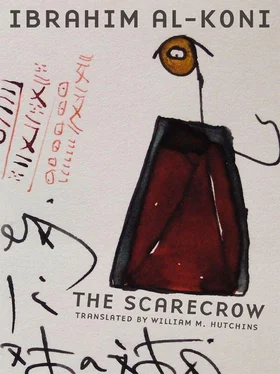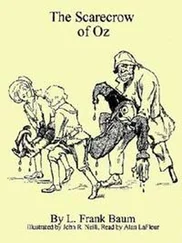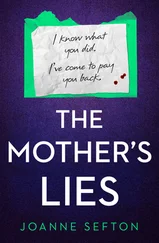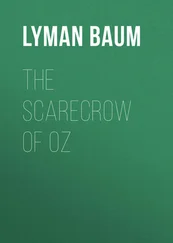The soldiers forced them to halt in the audience chamber and form queues. The master made an appearance and repeated his talisman: “Anyone who offers me his allegiance, come hell or high water, receives my guarantee that he will not feel hunger again or suffer from fear.”
They roared their approval and wept before him from delight. Then they advanced in columns toward the soldiers to accept their ration of wheat.
In that crowd, from somewhere in the rear, a loud, stern voice rang out, sounding as if the speaker had never known the taste of hunger and had never been importuned by his children’s complaints at home. “The food’s poisoned! Watch out!”
No one heeded his warning. People kept moving forward in their lines, dragging their feet like exhausted captives who had crossed the desert on foot. They bowed to the soldiers and then received their portion of a gift that would deliver them from hunger and safeguard them from fear.
The soldiers, for their part, did not heed the warning either; perhaps they did not care.
The voice cried out again: “This is a banquet, and a banquet is always a trap. So beware!”
The cry was lost in the din once more. Then the creature hidden in the crowd screamed out a new prophecy: “Once he captured your best men with gifts at a banquet; now he captures you as well — with party favors!”
No one heeded his cry. No one paid any attention to his existence, because hunger’s sovereignty has always proved stronger than prophecy’s.
5
The soldiers finished transporting the dead palm trunks from the fields and then piled giant pyres of logs and planks in the temple plaza to create a bonfire bigger than any ever seen in the desert before.
The leader ordered the citizens to gather inside the ring of firewood and then positioned himself on the hill by the gate of the glorious fortress. He waited until everyone was silent and then spoke with the harsh terseness he had learned from the language of prophecies. “When I promised one day that if you pledged allegiance to me, come hell or high water, I would deliver you from hunger and fear, I took a solemn oath. Then I fed you and fulfilled half my oath. Now the time has come for me to fulfill the second half.”
He gestured to the chief vassal, and Abanaban raised his hand as a signal to the soldiers, who immediately rushed to set fire to the wood.
Screams resounded, and voices cried for help.
People shoved each other aside, trying to escape from the circle of fire, desperate to save themselves, but the soldiers stabbed them with swords and spears. Many fell to the ground, bleeding profusely, and then were trampled underfoot by the mob. Others retreated only to be choked by waves of smoke. They perished, like the rest, in the tongues of flame.
Despite the ferocity with which the soldiers guarded the ring around the fearsome hearth, the will to survive — the will to live — proved stronger than all the ploys of these clever technicians, and fugitives escaped here and there. Then they raced across the naked earth on their way to the Western Hammada Gate, but specters rushed at them there, too, and felled them with arrows and lances.
This holocaust lasted a long time.
The soldiers polished off the civilians, and that night the leader hosted a banquet for his troops to repay them for the expert execution of their duties. They were not, however, destined to enjoy another sunrise, because the poison that their master had mixed into the food proved fast-acting, and they perished in no time at all.
6
The next morning the leader climbed to the roof terraces of the glorious fortress accompanied by the chief vassal. He contemplated the soldiers’ corpses, which were strewn around the hill, and gazed at the fearsome hearth — cluttered with ashes, charred wood, and pieces of bone — from which plumes of smoke rose. He looked up at the clear, arrogant, indifferent sky, and tears filled his eyes as he said, “This is the sacrificial offering!”
The chief vassal beside him swayed and wailed in a voice that was not his own: “How harsh is the vengeance of lords! How cruel is the vengeance of lords!”
The master repeated in a voice that also was not his own, “This is the sacrificial offering!”
Stillness was pervasive, a stillness that seemed appropriate for an oasis where only the dead remained. The stillness lasted for some time.
Then the master asked, “Should we lament the destruction of a creature who forgives a bad deed but never a good one?”
The chief vassal lamented, “Man doesn’t forgive a good deed, master, because he is a man; man doesn’t forgive a good deed, because he rejects shackles and doesn’t want to be encumbered by obligations to others.”
“Even though such madness doesn’t give this creature any right to expect mercy, I fulfilled my promise — as you have seen. I saved them from fear after I fed them to deliver them from hunger. No enemy will ever harm them, and no evil will ever befall them.”
“Even if a creature fears pain, he would rather slither across the ground with no limbs — provided he remains alive — than swallow a panacea that spares him pain’s evil but costs him his life.”
“This is another argument that confirms that this arrogant creature does not rise much above the level of vermin.”
“All the same, the desert loses its splendor and becomes a desolate wasteland once man leaves its realm. Look at the oasis, master! Don’t you see that this is no longer an oasis? Don’t you see that what was an oasis yesterday has become an empty space we could call anything but an oasis?”
The leader did not reply, and a stillness befitting a place populated only by the dead settled over it.
This stillness did not last long.
A blade emerged from a sleeve, the light of the morning sun washed over it, and then it descended like lightning to pierce a chest. The chief vassal staggered and stumbled back. He emitted a subdued groan before mastering himself and taking a few steps forward till he was beside his master, who whispered sadly, “Forgive me. A man who chooses to flee from his enemies must avoid leaving any witnesses behind.”
The wounded man grasped the dagger’s handle and, with the forbearance of the ancients, replied, “I knew my master would inevitably do this one day.”
“I’ve been forced to join the ranks of the caravan you said could pardon a bad deed but not a good one. You’ve done me many favors, and now you’re receiving your just reward!”
“My master can rest assured that I shall bear no grudge against him, because what he has done proves that my master belongs to the human race.”
His pains silenced him, but he struggled stubbornly to withstand the blow and tried to pull the dagger from his chest. He staggered a step forward and then two steps back. He moaned grievously before falling to his knees and then collapsing on the roof terrace.
Rays of morning light illuminated his eyes, in which the master saw all the profundity, peacefulness, and symbolism of a smile.
7
He vanished into the chambers of the fortress and disguised himself in a shepherd’s tattered garments. He descended the northeast side of the hill and cast a searching look at the heavens. The luminous disc was settled at the heart of the sky, and all beings swam in the mirage’s tongues. He listened carefully and heard the stillness. He detected the murky clamor that desert dwellers have learned to hear in the majestic stillness — the clamor that is always the secret message of stillness, a clamor that diviners call the gibberish of eternity.
He listened carefully for a long time and was about to continue on his way when a nagging whisper stopped him. He paused to listen carefully again. He began to spy on this stillness once more. He tried to discern the whispered temptation in the sound of the stillness, the symbol in the voice of the silence, the worldly disturbance in the gibberish of eternity. He froze and held his breath. He focused his entire body on listening and transformed his limbs into ears. So he heard; he heard another convulsion in the clamor of the ages. He detected a distant, disturbing, monotonous pulse like the songs of grains of sand complaining in the deserts to the gloomy expanses of night about the days’ raging heat. Had the quake’s hour arrived? Don’t scholars say a similar sound precedes earthquakes?
Читать дальше












